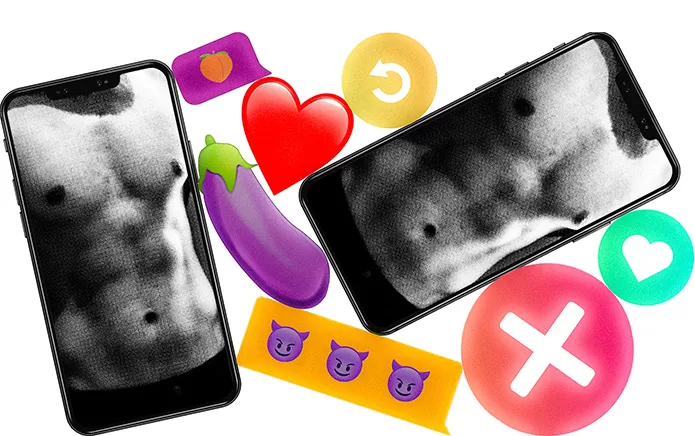How do I set boundaries to ensure that the people I speak to know that I’m interested in dating rather than hooking up?
I think the main thing I always like to say about boundaries is that they are guides for yourself. Boundaries are not things that we put up in order to tell people what to do with their lives. They are there for us to know what we’re doing with our lives, and for people to know what we are doing with our lives. If they want to change according to that, they can, but if they don’t, they don’t. Ultimately we can’t control that. We can only control ourselves.
It’s important to establish intentions: What is it that you want? What is it that you’re looking for? One thing that people often miss about boundaries is that it’s important to match what you’re saying with what you’re doing, because where our boundaries falter quite often is in the doing. We may be very clear with what we say and how we communicate our boundaries, but if our behaviour doesn’t match the boundary, ultimately we’re giving other people mixed messages and we’re also giving ourselves mixed messages which is ultimately you telling yourself ‘What I need and want is not important because I’m faltering on my own commitment to myself and I’m not valuing my own commitment and own intention’.
It’s important to establish intentions. One thing that people often miss about boundaries is that it’s important to match what you’re saying with what you’re doing,
Every time we fail to maintain a boundary, psychologically we’re telling ourselves that we’re not important enough and we therefore take away a piece of our self-esteem and confidence. Yet, every time we exercise our boundaries effectively, we get a boost of confidence, self-esteem and self-worth.
How do I find people to date when my friends are predominantly straight?
This is potentially either simple or complex, depending on the situation. Yes, a queer person might not meet queer people if they’re only in straight spaces or only around straight friends, so at some point, there has to be a move away from those spaces and those people in order to meet more gay or queer people. That can be a case of joining special interest groups, hobbies, or clubs. There has to be a move towards more queer spaces in order to meet more queer people.
However, there may be psychological aspects that make that difficult. For instance, examining what feels comforting about your friends and the spaces that you’re in and what feels scary about moving into those queer spaces? Can the person work on those things? Can they ask for their friend’s support? Can they maybe even seek a professional for just a few sessions?
It’s not something that is a crisis but sometimes short-term therapy with a queer therapist could be really helpful to get a bit of confidence to be able to join new spaces. There’s some doing there about trying new spaces, but then there’s also some emotional work to do about uncovering why that might be difficult.
I really want to date more but I’m worried about rejection.
I often talk to my clients about the randomness or mystery around meeting people and finding a connection. For example, we might meet someone and get on straight away, and we can also meet someone and completely dislike them straight away. We are the same person in each scenario and yet, the combination of who we are and who they are, sometimes just doesn’t work. The “why” of rejection, or lack of connection, isn’t always clear.
Ultimately, we can only control ourselves and so the autonomy to make any changes in life relies on our capacity to self-reflect
We don’t really know what’s going on in people’s lives, and they don’t know what’s happening in ours. I find that people often assume a lot about what happened in a situation or interaction – the typical never-ending analysis of text messages. But ultimately, we can only control ourselves and so the autonomy to make any changes in life relies on our capacity to self-reflect and act based on what we feel is important.
